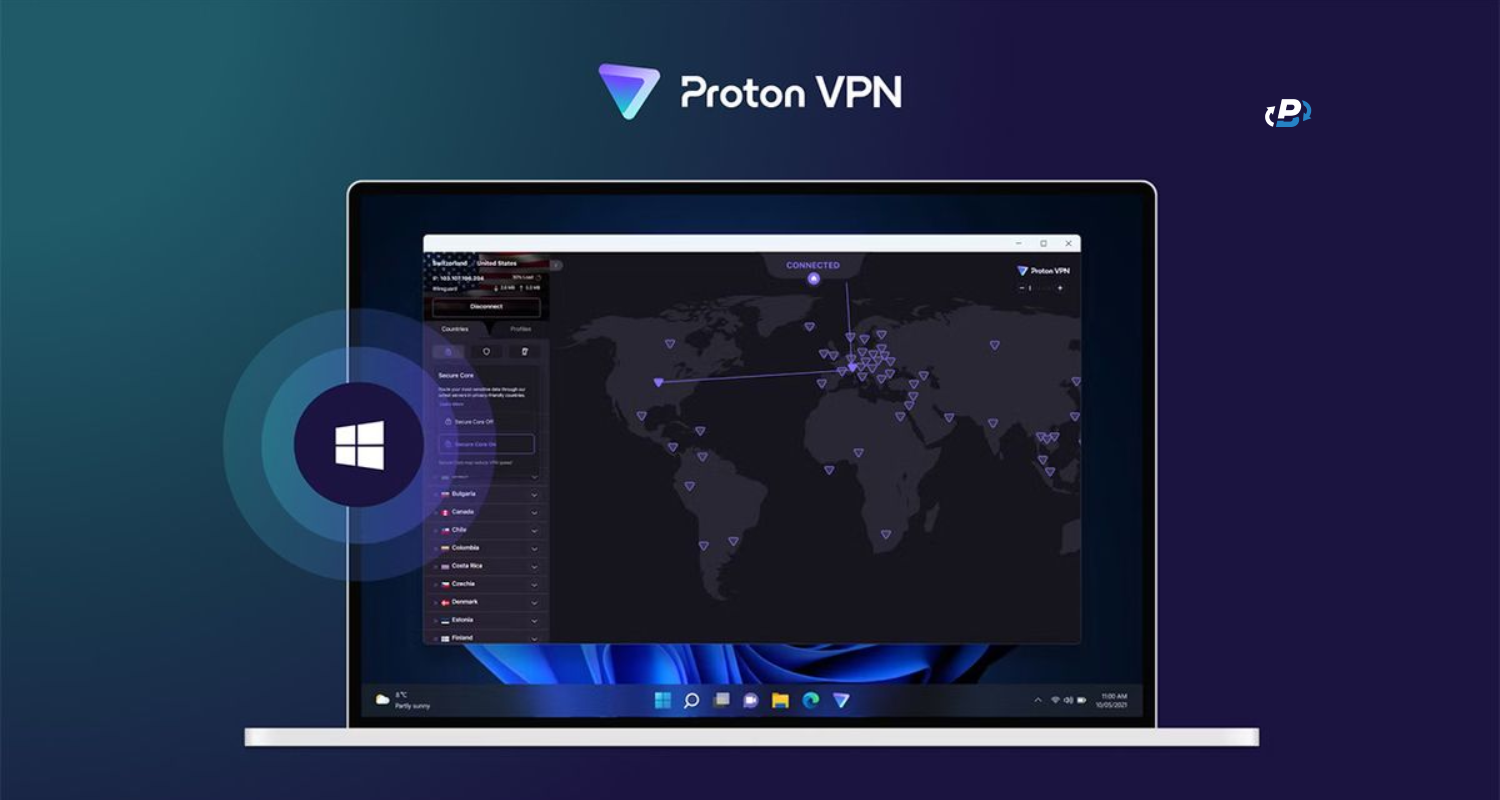Nowadays, people frequently access the internet from cafés, hotels, airport lounges, trains, stations, and other public places. Most of those places do not offer a secure connection. Virtual Private Networks (VPNs) provide a secure connection when you log in to a Public Wi-Fi. Proton VPN, one of the leading VPNs, lists Bitcoin as one of its accepted payment methods. In this article, we discuss how to pay for Proton VPN, if you already have Bitcoin, just simply sign up on the Proton website, and from your user area you will be able to get the Bitcoin address for payment. If you don’t have Bitcoin, you can send euros to the exchange via a bank transfer which will be credited to your wallet, then exchange the euro into Bitcoin, and transfer the Bitcoin to Proton VPN. You can also pay for Proton VPN with other cryptocurrencies through a crypto card loaded from your wallet using the crypto of your choice, then using the card as your payment method, like any other debit or credit card in the Visa or Mastercard circuit. Whether directly or indirectly, we’ll show you how to pay for Proton VPN.
Using Bitcoin to pay for Proton VPN
The steps below show you how to pay for Proton VPN directly using Bitcoin once you have registered on our website and opened an account.
Step 1 – Deposit section
Navigate to the "deposit" section and enter the amount you wish to buy
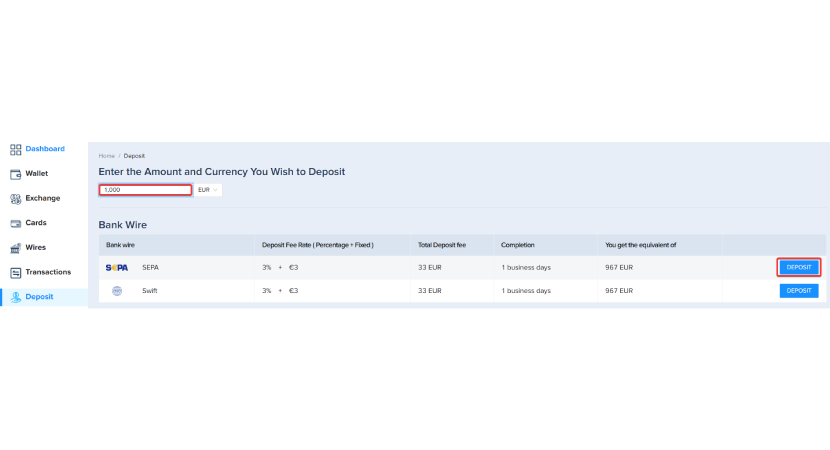
Step 2 – Select SEPA
Select SEPA for euro transfer to get the exchange bank details
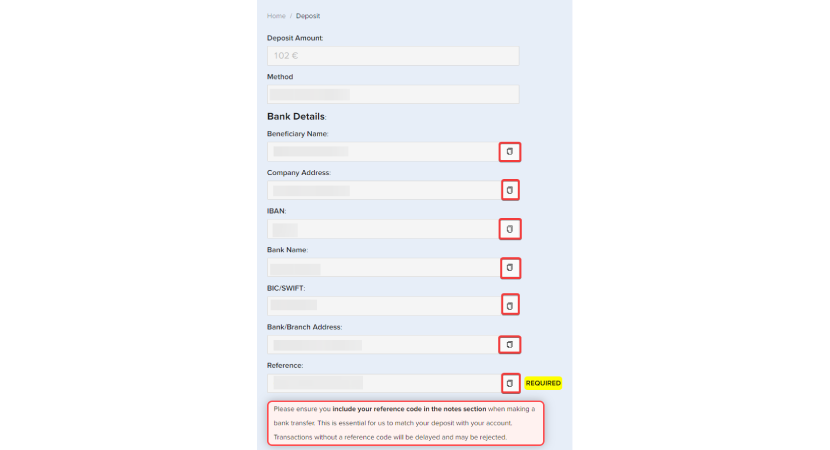
Step 3 – Bank transfer
Go to your bank account and submit the transfer
Step 4 – Credit to your Euro-wallet.
Once the transfer is completed, you will be credited to your Euro-wallet
Step 5 – Convert Euros to Bitcoin.
Head to the exchange section and convert the euro to Bitcoin
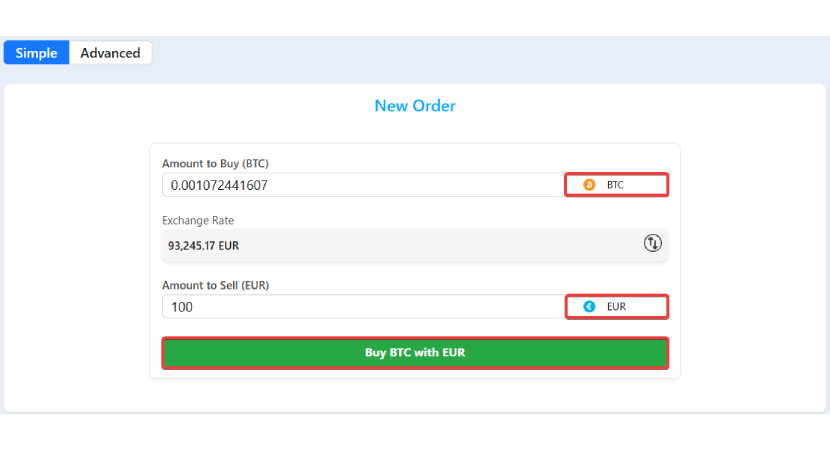
Step 6 – Create your Proton VPN account
First, register for Proton VPN, press on "create account", then press on "get proton free", then "continue with free," and fill in your email address and password.
Note: you won't see the option to buy with Bitcoin if you are not logged in.
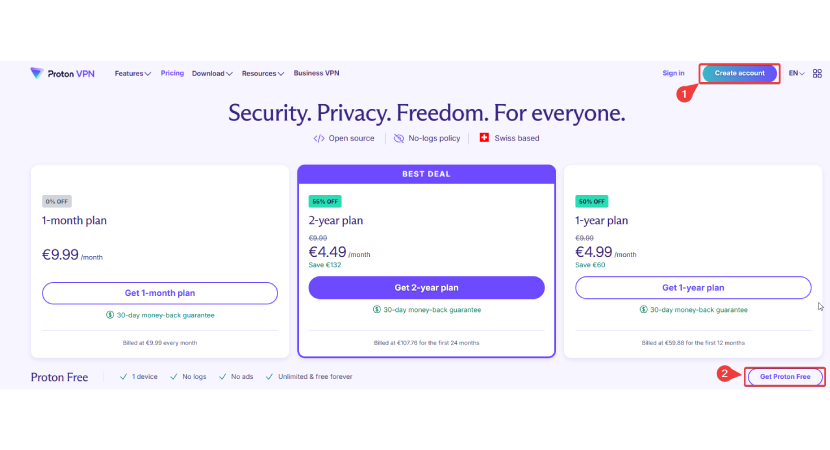
Step 7 - select VPN Plus
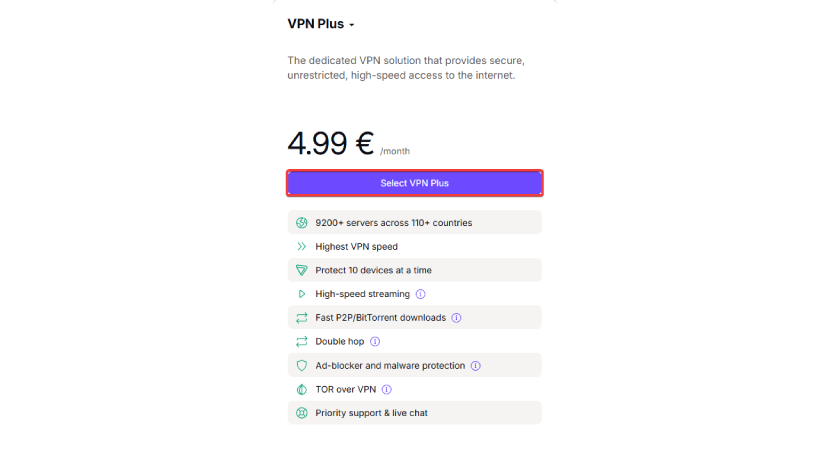
Step 8 – Select Bitcoin as payment details
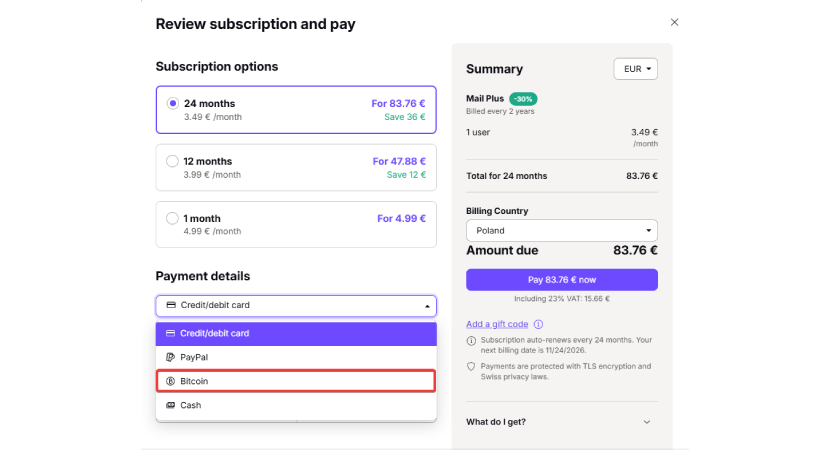
Step 9 - Bitcoin Amount
Proton's website will display the Bitcoin address and the Bitcoin amount; copy them.
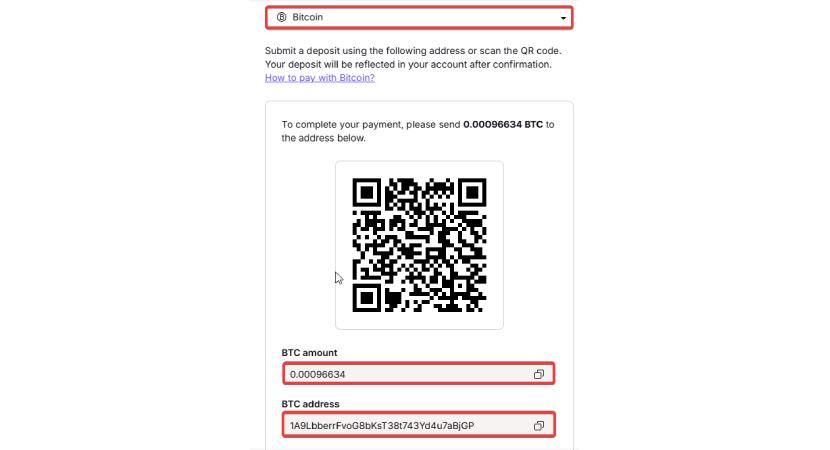
Step 10 - Paying with Bitcoin
Go to your wallet on the Plasbit website, paste the Bitcoin address proton and the correct amount of Bitcoin they provided, and then click submit.
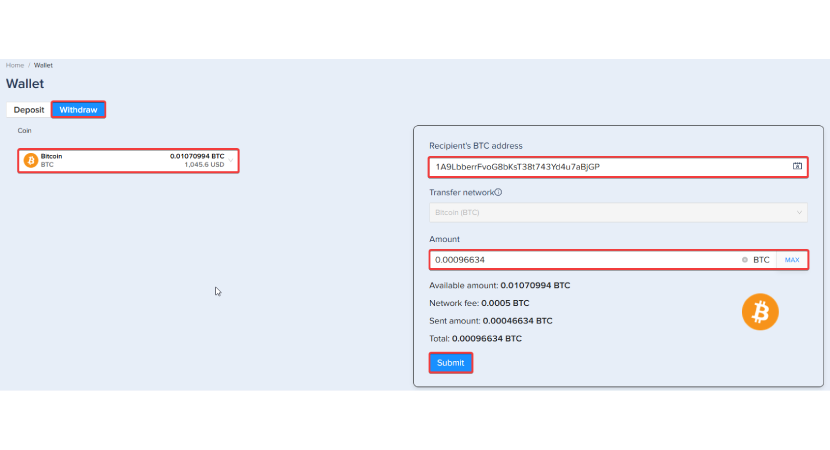
As soon as your payment is received, you will be able to use Proton VPN.
Proton only accepts Bitcoin
Proton accepts direct crypto payments only once you are logged in to an account and only using Bitcoin. They do not accept any other cryptocurrency. We can show you how to pay for Proton VPN using different cryptocurrencies through a card loaded from your wallet. Plasbit wallet supports several cryptocurrencies. You can transfer your crypto to your Plasbit wallet using steps 1 to 5 described above, just replace Bitcoin with the crypto of your choice. Then, buy a Crypto Card. Once you have your card, load it using the crypto you have in your wallet and use the card to pay for Proton VPN like any other card in the Visa or Mastercard circuit.
The importance of anonymity
Why is anonymity so important? Your personal information is spread all over the internet for legitimate reasons. Hackers don’t even need to attack your computer, data leaks can happen anywhere, and your information can be stolen, sold, or used to harm you. Even just relying on 'data shields' (encryption, VPNs, etc.) may be enough. We'll show you two examples where the Proton Group had to release information that led to identifying users who thought they were using encrypted emails. Then, we discuss what else you can do to protect your anonymity.
Proton cooperation with law enforcement
Proton VPN and ProtonMail are two services Proton provides; they function under two different legislative frameworks. ProtonMail must comply with the Swiss Federal Act on Surveillance of Postal and Telecommunications Traffic (SPTT). To comply with that law, ProtonMail revealed information that led to discovering the identity behind a ProtonMail pseudonym.
The French climate activist
In 2021, ProtonMail received a legally binding order from Swiss authorities, who were contacted by French authorities through Europol. Under Swiss law, it was obligated to comply with such requests in cases of criminal investigations. As a norm, they do not log IP addresses, but the Swiss court order forced them to log IP Addresses and devices and provide them to the Swiss authorities, who passed them on to the French police. This information was material to the arrest of the French climate activist. Proton reacted to the first case with the following statement. "Proton has minimal user information, as illustrated by the fact that in this case, data obtained from Apple was used to identify the terrorism suspect. Proton provides privacy by default and not anonymity by default because anonymity requires certain user actions to ensure proper OpSec, such as not adding your Apple account as an optional recovery method." Technically speaking, Proton Mail released information, as they were forced to do by law; other companies traced the identity of the climate activist from the information provided.
The pro-Catalan activist
In May 2024, the Spanish police were granted by the Swiss authorities the request to force ProtonMail to disclose the recovery email address associated with a ProtonMail account of a pro-Catalan activist as part of a terrorism investigation. This recovery email address was an Apple iCloud address. Once they obtained this information, the Spanish authorities used it to request additional identifying information from Apple, ultimately leading to the activist's identification and arrest. In this case, ProtonMail also released what they were forced to share by law; another company tracked down the identity of the pro-Catalan separatist from the information they provided.
Was Proton blaming the victims?
Privacy advocates did not like Proton's blaming the victims for their lack of operational security. Both cases highlight the limits of encryption and the need to be aware of local legislation in the jurisdiction where your mail provider is based. A user needs to be proactive to ensure anonymity. Using a VPN or an encrypted email is not enough.
How you can maintain privacy online
An expert can start mining your information starting from your email address. They can steal your identity and assets or sell your details to email marketing companies. There are precautions you can take to navigate privacy and anonymity in a digital world:
- Use decentralized email services that operate outside the jurisdiction of strict international legal frameworks.
- Implement Multi-Layer Privacy Protection; for instance, use VPN, encrypted messaging, and decentralized social media platforms
- Limit personal exposure; do not share personal information or identifiable details online, particularly if you undertake sensitive activities, like, for instance, personal investments.
Limiting personal exposure
There are precautions you can use to limit personal exposure. Like any security measure, it is up to you (and your circumstance) to decide how far to go.
- Use buffers between your personal data and any details you share online, like a decentralized email address and a virtual phone number to recover your user ID and password or a virtual reloadable debit card to hide your bank account.
- Use a VPN Service whenever possible to conceal your IP address. Privacy advocates advise users of encrypted email services like ProtonMail to use a VPN from a vendor not connected with your email provider (i.e, not Proton VPN if you use ProtonMail). The French activist mentioned earlier did not use a VPN, and the French police found him through IP logs.
- Use private payment methods when you purchase privacy-focused services. Paying by crypto-currency avoids a link with your identity. If the service does not accept crypto payments or does not accept your chosen cryptocurrency, you can use a Crypto Card loaded from your wallet using one of the several cryptocurrencies supported by your wallet.
- Understand service limitations and legal obligations. If privacy is essential to your activity, research the jurisdiction where the service provider is based and make sure you understand their service limitations. Providers of end-to-end encryption are not immune to legal obligations in their jurisdiction. According to Swiss law, ProtonMail had to release recovery email and IP address.
- Be careful what you share – Your emails or your attachments to emails can contain information a hacker can use to steal your data. For instance, a SIM Swap attack that netted hackers the equivalent of $24M started when a teenager found the mobile number in an attachment to one of the target's emails. Taking care of what you share, deleting cookies periodically, and understanding the limitations of end-to-end encrypted communication is the first line of defense for your privacy before any other precautions you can take. The defense must be appropriate to the risk (to yourself, your assets, or the continuation of your activity).
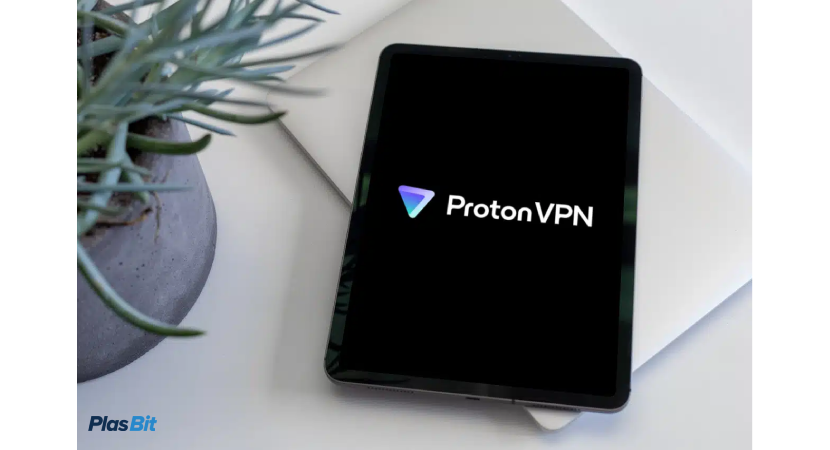
Proton VPN
Proton VPN features tools that are useful to small businesses and sole traders. Beyond the massive size of its VPN server network, Proton offers a password manager, secure documents and storage, a calendar, and even a crypto wallet.
Benefits
- Privacy and Security - It operates under a strict no-logs policy and is based in Switzerland, which has favorable data protection laws. The VPN features AES-256 encryption, a 3-state kill switch (including a Permanent Kill Switch), and protection against DNS leaks. It also offers NetShield, an ad blocker and malware protector that is automatically enabled but can be turned off in settings.
- Advanced Features – It allows users to access the Tor network directly through the VPN, enhancing anonymity. Proton VPN also includes features like split tunneling, custom and predefined profiles, and port forwarding (though unavailable for Macs). The VPN Accelerator claims to boost connection speeds by up to 400%, which is beneficial for streaming and reducing buffering.
- Performance and Speed - Proton VPN generally offers above-average speeds despite some variability. Tests showed speeds of up to 699 Mbps on a 900 Mbps connection, with an average speed loss of around 21%. Proton VPN performs well for streaming and bandwidth-intensive applications like 4K video streaming and Zoom calls.
- Server Network and Geo-Unsubscribing - Proton VPN has over 8,500 servers in 112 countries, which benefits worldwide streaming and geo-unblocking. The Secure Core network, though slightly slower, adds an extra layer of security by routing traffic through multiple servers.
- Transparency and Open-Source - Proton VPN is transparent about its operations and has open-source apps, which enhances trust and security. The company has a good track record and a reader-friendly privacy policy.
- Free Plan - Proton VPN offers one of the best free VPN plans, with unlimited data, no ads, and no data throttling. However, the free plan has limited server selection and automatically connects to the nearest server.
Downsides
- Pricing - One of the significant drawbacks is the above-average monthly pricing, which can be a barrier for some users, especially when compared to cheaper VPN options.
- Speed Inconsistencies - While Proton VPN generally offers good speeds, there can be inconsistencies, and the Secure Core servers are notably slower due to the additional routing.
- Gaming Performance - The VPN is not ideal for gaming due to higher latency and ping times, mainly when using the Secure Core servers.
- Fire Stick App Limitations - The Fire Stick app is basic. It lacks the advanced features available on desktop and mobile devices, which can be disappointing for users who expect a consistent experience across all devices.
- Server Maintenance Issues - Some users have reported that many servers are down for maintenance without warning, which can be inconvenient for those with manual configurations.
- IP Address Issues - Some users have experienced issues where their IP address does not match the selected server location, leading to occasional connectivity problems.
- Customer Support and Features - There are some user complaints about slower support ticket responses and the lack of certain features like dedicated IPs and SOCKS5 proxy support.
Alternatives to Proton
In an article last updated on 24 October 2024, Techradar puts Proton VPN among the top five VPNs available on the market. This section is a quick overview of the other four.
NordVPN
NordVPN is renowned for its blazing-fast speeds. It uses its proprietary NordLynx protocol to achieve speeds with as little as 3.19% speed loss on Windows and 12.56% on MacOS. It has a 10 Gbps bandwidth and over 6,400 servers in 111 countries, ensuring reliable and fast connections globally. It uses strong AES-256 encryption and supports OpenVPN and NordLynx protocols, ensuring high-security standards. The service features RAM-only servers, meaning no user data can be stored on the servers. Additionally, it offers Double VPN and Onion Over VPN servers for enhanced security. Thanks to user-friendly apps across various devices, it is easy for beginners and advanced users. It is excellent for streaming and capable of unblocking geo-restricted content. However, it has higher renewal costs following attractive introductory pricing, relies on live chat and email support, and has a limit of 10 simultaneous connections, which is not a lot compared to competitors offering unlimited connections. The browser extension of NordVPN is not impressive, and it can be inconsistent in terms of speed.
Surfshark
Surfshark VPN is fast, especially when connected to nearby servers, where download speeds drop by only about 5%. However, it may not be the fastest over long distances. It can connect unlimited devices simultaneously, making it highly versatile for households or businesses. It uses strong AES-256 encryption and has an audited logging policy, ensuring no identifiable data is logged. It offers advanced security features such as a VPN kill switch, DNS and WebRTC leak protection, and MultiHop servers for added privacy. Its speed allows streaming without geo-location restrictions. The Camouflage Mode helps hide the fact that you are using a VPN, useful in countries with VPN restrictions; features like CleanWeb (ad and tracker blocker), Bypasser (split tunneling), and NoBorders mode enhance user experience and security. It has well-designed and easy-to-use apps for all devices and operating systems and provides 24/7 live responsive chat support. But, although annual subscriptions are competitively priced, its monthly subscription price is one of the highest among VPNs. Its upload speeds are significantly slower than other VPNs. There have been connection issues, such as the VPN tunnel not completely shutting down when the app is closed, resulting in constant CAPTCHAs and website connection problems.
Express VPN
ExpressVPN download speed can be up to 898 Mbps and maintains high performance across various server locations, ensuring minimal buffering when streaming. The service is leakproof, with no DNS, IPv6, or WebRTC leaks detected during tests. It uses diskless TrustedServer technology and has passed multiple independent third-party audits for security and no-logs policies; it also implements perfect forward secrecy to protect past sessions. Its straightforward apps feature a prominent Connect button and easy-to-toggle options. It supports split tunneling on macOS, Windows, and routers. A highly praised live chat offers 24/7 support. The server network spans 105 countries, allowing users to access various streaming services and bypass restrictions like China's Great Firewall. ExpressVPN works well in regions with strict internet censorship; its obfuscated servers automatically activate when needed to hide the VPN connection from ISPs and government watchdogs. However, it is more expensive than many other VPN services, with monthly costs starting at $6.67 for a one-year plan and up to $12.95 for a single month, despite offering fewer additional features than some competitors. It lacks port forwarding and dedicated IP addresses and only offers eight simultaneous connections.
Privado VPN
PrivadoVPN offers a free VPN plans with 10GB of data per month, access to 12 servers in 10 countries, and a strict no-log policy, although it has not been independently audited. The paid plans are relatively low-cost, with a 24-month plan starting at $3.99 per month. Some users find the paid plans to be overpriced compared to the features and server network offered The service uses secure encryption protocols such as OpenVPN, IKEv2, and WireGuard; a kill-switch (available on desktop apps), DNS/IP leak protection, and IP leak protection enhance user data security. PrivadoVPN generally offers good speeds, but speed can vary significantly, especially if you are connecting to distant servers. In many countries, speed can be medium-slow, which can be a problem for streaming. The free plan is limited to 12 servers in 10 countries, which can impact connection speeds from distant locations. Even the paid plan has a relatively small server network compared to other VPN providers. The free plan is restricted to one simultaneous connection, which can be a limitation for users who need to connect multiple devices at the same time.
ProtonVPN and crypto
VPNs protect from hackers when using public Wi-Fi, allow you to circumvent geo-location restrictions, and allow you an enhanced level of privacy. You can maintain an even higher level of anonymity if you pay using crypto. We have shown you how to pay for Proton VPN directly using Bitcoin. However, if you have other crypto, we have also shown you a way to pay indirectly using a crypto-funded card. A crypto card can give you an extra layer of privacy. Plasbit prioritizes privacy, and we only collect the personal information required by the authorities for users of our wallets and cards. Ultimately, if you want 100% anonymity, you need to take some precautions; for instance, to paraphrase the Proton spokesperson quoted above, you should not add your email account as a recovery email address.
Disclaimer: This article is intended solely for educational and informational purposes. It should not be considered financial, investment, or legal advice.




